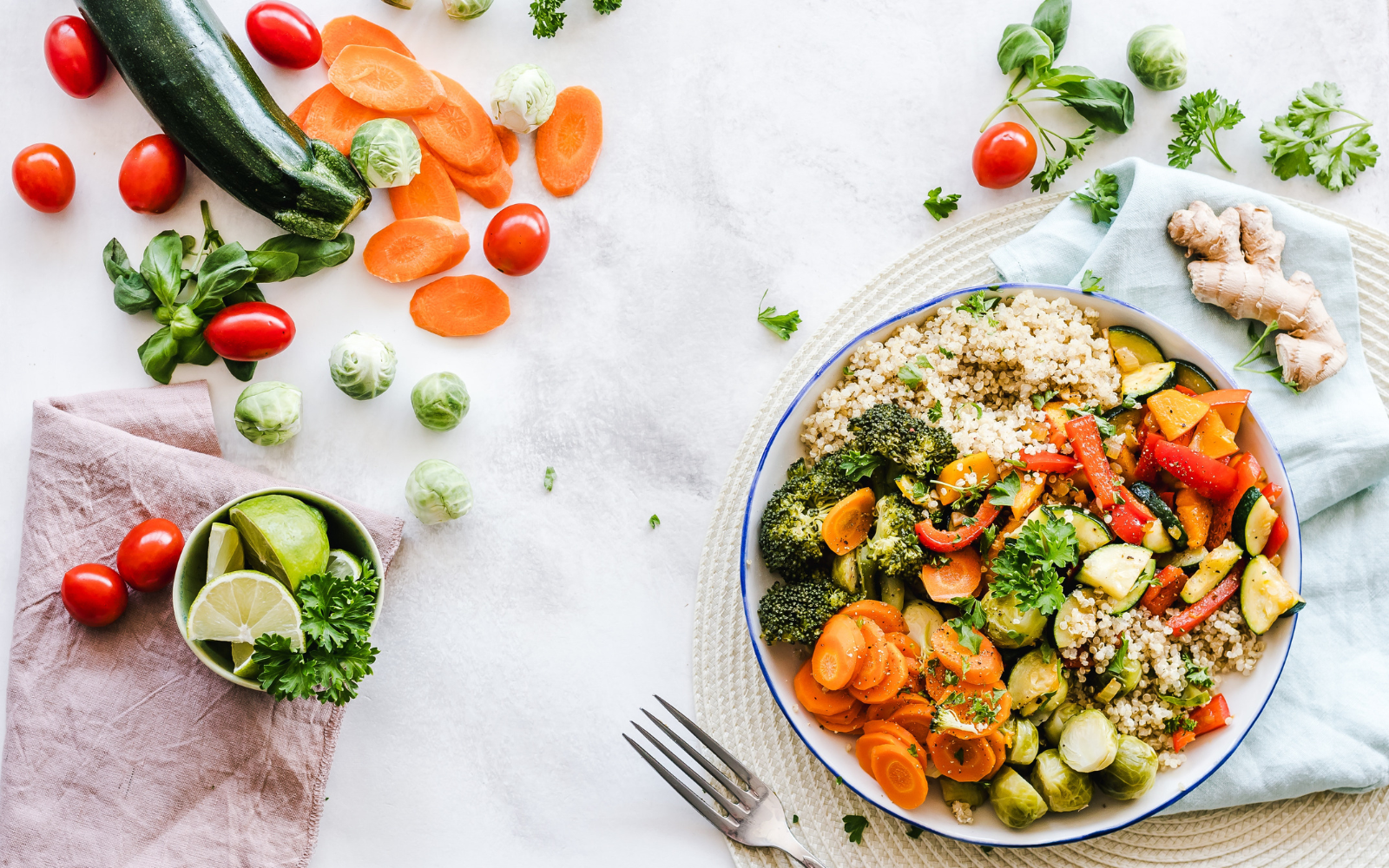Leaky gut syndrome is a condition that occurs when gaps begin to form between the tight protein junctions that make up your gut barrier, resulting in permeability. This permeability can result in a number of symptoms, ranging from digestive issues like bloating and diarrhoea, to skin conditions like acne or psoriasis.
What causes leaky gut syndrome?
Many factors that harm your gut microbiota contribute to leaky gut syndrome. These include:
-
Gluten and gliadin: These proteins, which are found in wheat, barley, rye and spelt, have been shown to increase zonulin. Zonulin is a protein created in your small intestines and liver. It modulates the permeability of tight junctions between cells of your gut wall, controlling what should and shouldn’t be allowed to enter your bloodstream. When zonulin is elevated, it loosens the cell tight junctions of the small intestine and is one of the main causes of leaky gut syndrome.
-
Gut dysbiosis: This is an imbalance between beneficial and harmful species of bacteria in your gut. These harmful bacteria can contribute to leaky gut syndrome by triggering zonulin and reducing the protective mucosal layer in your gut. Having a healthy gut microbiota is important in supporting the gut barrier and preventing autoimmune reactions.
-
A poor diet: Diets low in fibre, and ones that include allergens and inflammatory foods such as added sugar, GMOs and food additives.
-
Genetic predisposition: Certain people may be more predisposed to developing leaky gut syndrome because they're sensitive to environmental factors that trigger their bodies into initiating autoimmune responses.
-
Chronic stress
-
High toxin exposure, including xenobiotics, drugs, tobacco and alcohol use
-
Frequent use of some medications including antibiotics, aspirin and NSAIDS
How to prevent or improve leaky gut
It’s important to address all factors of health, including sleep quality, stress management, bacterial infections, exercise and nutrition when working to rebuild good gut bacteria, support damaged tissue repair and address the causes of leaky gut syndrome.
Managing your stress is important. Stress hormones like cortisol and adrenaline can break down the cell tight junctions that line your digestive tract together. When you reduce these stress hormones through rest and relaxation, eating mindfully, breathing exercises, good sleep quality, meditation and moderate exercise and movement, these tight junctions can heal.
Eating a wide variety of fresh whole foods and shifting the food you eat away from processed and damaging foods to more organic, fresh, whole foods is also very important.
Best foods for leaky gut
It's a good idea to ensure you’re eating the best foods for leaky gut as they’re easier to digest and can help repair the lining of the intestines. Foods to eat for leaky gut include:
-
Collagen-rich foods: For example, bone broth contains collagen and the amino acids proline and glycine that can help heal damaged cell walls in leaky gut.
-
Omega 3 fats: Certain protein foods also contain healthy omega 3 fats, such as flaxseeds and oily fish like salmon.
-
Healthy fats: Consuming healthy fats in moderation, like egg yolks and avocado promotes nutrient absorption and is beneficial for supporting leaky gut.
-
Raw cultured dairy: Raw dairy contains beneficial live bacteria when fermented and short-chain fatty acids that can help heal leaky gut. Pasteurised kefir, yoghurt, butter and raw cheese are some of the best options.
-
Fermented foods: In addition to fermented dairy products, fermented vegetables are some of the healthiest probiotic foods. They contain probiotics to support the gut and organic acids that balance intestinal PH. Sauerkraut, kimchi and miso are great sources.
-
Coconut products: All coconut products are good for dealing with leaky gut. Coconut kefir contains healthy microbes that support your digestive system.
-
Sprouted seeds: Chia seeds, flaxseeds and hemp seeds that have been sprouted are great sources of fibre that can help support the growth of beneficial bacteria.
-
Fruit: Consuming one to two servings of fruit daily is a good way to get much needed vitamins and minerals, as well as fibre to support the gut.
Worst foods for leaky gut
It is essential to avoid or greatly limit allergens and inflammatory foods, which can be significant causes of leaky gut. Foods and ingredients to avoid include:
-
Unsprouted grains, especially those containing gluten (wheat, rye and barley). Sprouting and fermenting grains reduces phytates and lectins, making these foods easier to digest
-
Processed foods and sugar
-
GMOs
-
Processed foods made with synthetic food additives
-
Heavy alcohol use
Leaky gut supplements
There are also many supplements that support the healing of leaky gut as well as protect the gut lining from further damage.
-
Probiotics: This is the most important supplement to take because it helps replenish good bacteria and crowds out bad bacteria.
-
Collagen: Collagen contains the amino acids glycine, proline, and hydroxyproline that are needed to strengthen, repair and rebuild the gut lining, making it less permeable and more likely to retain nutrients from food.
-
Vitamin D: Vitamin D supports the immune system and subsequently, the gut microbiota. It is a winter essential, especially when you live in a cold, dark country.
-
Omega 3: Omega 3 makes up the building blocks of our cells, so can support the cell membranes within your gut.
Summary
Though it can seem like healing a leaky gut is complicated, following some simple basic steps can really help. As discussed above, these include things like eating an anti-inflammatory diet that’s right for you, incorporating leaky gut supplements and nutrients to restore the gut lining and getting enough sleep, exercise, and relaxation.






Share:
Easy tips for achieving healthy skin naturally
What are the functions of Vitamin D3 & how can we prevent deficiency?